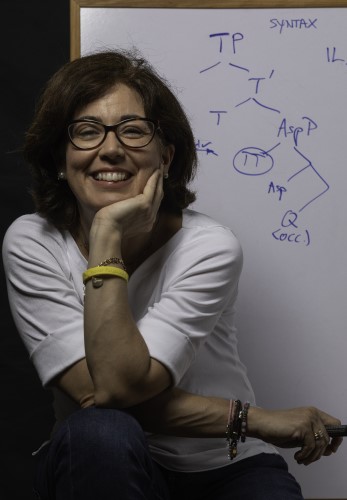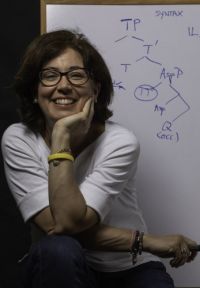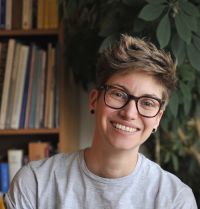About us: our vision
The Centre for Research in Language and Heritage (CREL) is founded on the view that a powerful way to address the world’s most complex social, economic and environmental challenges is through a better awareness and understanding of the things that make us humans. By exploring our unique ability to speak, to create texts, to build societies and shape landscapes – and how these and other practices may change over time and space, CREL’s world-leading, interdisciplinary researchers seek to construct a healthier, happier and more equal society.
We aim to:
- Create and support a high-quality inclusive academic community, recruiting, mentoring and upskilling members at every stage of their career.
- Foster multisectoral networks of researchers, stakeholders and policy advisors within and across centres at university, regional, national and international levels to increase opportunities for new funding and multidisciplinary publications.
- Provide multidisciplinary, evidence-based responses of the highest quality, arising from rigorous specialised knowledge of linguistics, history and literature, and active collaboration in multisectoral networks.
- Engage with professional organizations, NGOs, civil societies, policymakers, students, and local and central government to raise awareness about inequalities stemming from inadequate attention to different language needs and to the value of literary education and heritage.
- Influence social structures, policy and our academic disciplines through rigorous and impactful research and knowledge exchange activities.
Our impact on the world
At CREL we posit that raising awareness of, and sensitivity to, language, literary creations and heritage can play a role in addressing many health, education and other challenges faced by societies in the UK and around the world. For instance, failure to support language needs affecting children and young people impacts their wellbeing and contributes to disengagement from education. Through literature and creative writing we can impact the conceptions about race, gender and ecology. Similarly, working to improve the relation between people, communities and their environments in the past and present through the uses of (in)tangible heritage can improve the inclusion of those communities, their health and wellbeing. Our research seeks to address such cultural blind spots, exploring new ways to exchange ideas and ensure that everyone is included in the conversations that shape societies and transform landscapes.
The Centre for Research in Language and Heritage seeks to contribute to many of the UN Sustainable Development Goals (SDGs). Key examples include:
- Our work to raise awareness and improve the assessment of language needs – including a ground-breaking Manifesto for language needs, an Early Day Motion brought to the British Parliament in late 2023, which supports Good Health and Well-being (SDG3).
- Our work on how to bridge the gap between linguistic theory and practice for those teaching pupils for whom English is an additional language, which supports Quality Education (SDG4).
- Our research on how narratives can change perceptions about critical issues, including climate, ecology and labour, which supports Work (SDG8) and Climate Action (SDG13).
- Our leadership in the Greenwich Heritage Network, an initiative that brings together researchers and communities to increase knowledge of our roots and explore the impacts on wellbeing from the ways heritage sites are used, which supports Reduced Inequality (SDG10).
- Our projects on language abilities in young offenders, to bring inclusivity to the criminal justice system (EU COST Action Justice to Youth language needs) which supports Peace, Justice and Strong Institutions (SDG16).
Who we are
An interdisciplinary approach
The Centre for Research in Language and Heritage combines expertise from cognitive, health, education and social sciences (e.g., linguistics, psychology, speech and language therapy) with insights from the humanities, notably literature, creative writing, history and heritage practice. We see this highly interdisciplinary approach, where different voices are heard and new forms of research and engagement are co-produced, as the only way to respond to many complex issues. Regardless of specialism, however, all CREL members share the aim of addressing inequality and lack of inclusivity.
Partners
CREL researchers collaborate closely with a broad range of external partners, including the Royal College of Speech Therapists, the NHS, paediatricians and clinical networks. We also engage with the Royal Borough of Greenwich, the Greenwich Heritage Trust, the Palestine Exploration Fund and the UK Punjab Heritage Association, among many other important local and national governmental and civil society organisations. Our academic partners include higher education institutions in the UK and around the world, including University College London, Birkbeck, SOAS, the University of Liverpool and the University of Amsterdam, as well as British Academy scholars. The work of the Centre for Research in Language and Heritage also benefits from an advisory board with expert input on language, literature and heritage.
Funding
The work of the Centre for Research in Language and Heritage is supported by EU Horizon, the Royal Netherlands Academy of Arts and Sciences, the British Academy, the Wellcome Trust and the National Army Museum and Commonwealth War Graves Commission, among others.
Teaching and training
CREL provides a range of external and internal teaching and training. We have recently launched a new course for undergraduates on Clinical Linguistics alongside our existing course on Foundation for Linguistics, which are core for those studying speech and language therapy. Among our Masters-level courses are MAs in Applied linguistics, Creative Writing and English: Literary London. An MA on Public history and heritage is under consideration.
We also offer statistics and quantitative methods training for postgraduate students and any member of staff. The Centre hosts the Science Practice Hub (SciPHub), founded in partnership with ILD in 2019. The SciPHub offers regular training on statistics, convenes science dialogues about key issues of methodology in research and captains the Open Science initiative of the ReproducibiliTea Club, which made the University of Greenwich part of the UK Reproducibility Network (a national peer-led consortium investigating the factors that contribute to robust research).
Externally, we are the leading partner with the University of Southampton for a postgraduate research Summer school on Multilingualism.


































